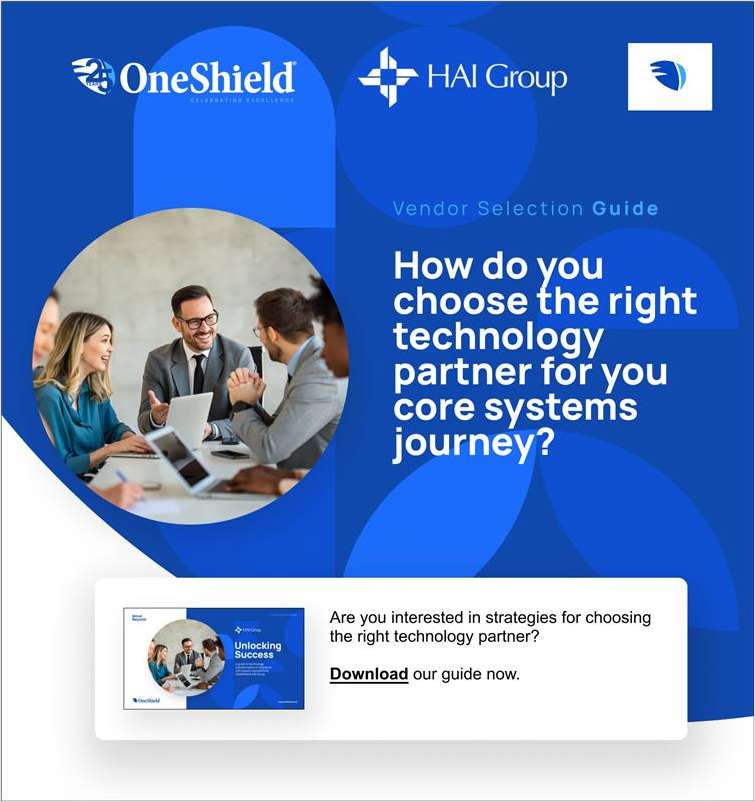Most businesses are regularly barraged by sales “pitches.” Thetelephone brings automated telemarketing calls as well as realpeople reading scripts. The postal carrier delivers pounds of paperciting numerous reasons for consumers and businesses to part withtheir money. Even our facsimile machines print unwanted–andimmediately discarded–advertisements. Despite electronic filters,our daily e-mail still contains a plethora of spam, whiletelevision, radio and billboard advertising continually bombard oursenses.
|For most mass marketers, advertising is a numbers game. The moreimprints they make on a consumer's mind, the greater the likelihoodthat he or she will purchase their products or services. However,mass marketing does not generally apply to the insurance industry,except for national and regional personal-lines direct writers. Forindependent agencies, marketing is much more targeted. We mayadvertise personal lines to a specific geographic area, but thecommercial niche is much more difficult to reach.
|So, if mass marketing is not the answer, how do we initiaterelationships with commercial-lines prospects and begin earning theright to their business? Here are a few suggestions.
|Affinity marketing
|Affinity marketing makes use of relationships you already havewith prospects or with third parties with which your prospects alsohave relationships. It leverages your experience and earned trustto open doors to new clients and increase business with existingones.
|Affinity marketing can include:
|o Establishing client referral policies and procedures.
|o Developing “ambassadors” within your community to promote yourservices.
|o Negotiating mutually beneficial marketing relationships withother businesses.
|o Soliciting association endorsements.
|o Group marketing efforts to individual niches.
|o Cross-selling products to existing customers.
|Educational/informational marketing
|Educational or informational marketing is more difficult thanaffinity marketing because it requires you to earn the right toapproach potential clients without benefit of an actual or impliedendorsement. You can do so by providing information to prospects tohelp them better manage their businesses. Examples include:
|o Newsletters (paper or permission-based electronic).Don't make your newsletter a billboard for your products orservices. Rather, focus on clients' needs and deliver informationto help them operate their businesses. Any sales messages should bealmost subliminal.
|o Letters. A respectful, personal letter still is anexcellent way to begin a relationship. Include a copy of abeneficial article, or simply ask for permission to send occasionalitems of interest.
|o Phone calls. I don't recommend making “cold calls.”Prospects generally perceive them as a nuisance and aninterruption. Instead, send collateral material and follow-up witha phone call.
|Testimonial marketing
|Testimonial marketing is closely aligned to both affinity andeducational marketing. It can be effective in buildingrelationships and developing credibility and trust with prospects.There is no more effective marketing tool than a recommendationfrom a satisfied client. Don't be afraid to ask your clients fortestimonials, and when you get them, use them!
|Creative marketing
|Taking a creative approach can help you earn the right tosomeone's business. For instance, one agency in the Northwestwanted to break into the trucking market. Although it offered anexcellent program with competitive pricing, its cold-call visits,letters and phone calls sparked little interest. Assisted by somemarketing professionals, the agency identified trucking executives'primary operational concerns:
|o Hiring, training and retaining good drivers.
|o Dealing with federal and state regulations.
|o Lack of interaction with their peers (“lone wolf”syndrome).
|The agency recorded four audio programs to introduce itself totrucking companies. One featured a human resources expert whodiscussed employee hiring, training and retention. The secondfeatured a regulatory/compliance authority. In the third, acorporate philosopher helped CEOs overcome the lone-wolf feeling.The final program highlighted the insurance agency's capabilitiesand the caliber of its employees.
|Every four to six weeks, the agency sent each of its truckingprospects one of the audiotapes, accompanied by a shortintroductory letter with a closing paragraph stating that theinsurance agency focused on the needs of the trucking industry. Thefinal mailing included the tape with the agency's profile.
|By the time producers hit the streets to follow up on themailings, trucking companies already were calling to schedulemeetings and obtain quotes. They were impressed that an insuranceagency cared enough to help them solve their business problems. Thecampaign was a tremendous success, and today the agency insures alarge segment of the Northwest's trucking industry.
|Aside from its use of audio programs, this campaign was littledifferent from the previously mentioned examples ofeducational/informational marketing. Another variation would be togive prospects such gifts as business-themed books andsubscriptions to general business magazines or those that cater toa prospect's industry. Think of items that will position you assomeone providing solutions, rather than someone sellinginsurance.
|The marketing foundation
|Any marketing program or resulting relationship is only as goodas the foundation of the agency behind it. We've all seen greatmarketing campaigns from companies that don't live up to the hype.Don't be a flash in the pan. Make sure you have the systems andpeople to support any campaign. Never solicit more prospects thanyou can follow through with, and don't allow leads to grow oldbecause you are too busy to handle them immediately.
|Assess the strength of your marketing foundation by askingyourself if you:
|o Possess expertise on coverages required by the industry you'retargeting.
|o Possess expertise about the industry itself.
|o Nurture a caring culture within your agency.
|o Continually focus on the needs of clients and prospects.
|o Provide solutions first, insurance second.
|Marketing is an important facet of many businesses, includinginsurance sales. I've suggested several ways for you to beginbuilding relationships with prospects and earn the right to theirbusiness. If you focus on serving your clients, you'll cut throughthe marketing clutter and demonstrate that you genuinely careenough to fulfill their insurance needs.
Want to continue reading?
Become a Free PropertyCasualty360 Digital Reader
Your access to unlimited PropertyCasualty360 content isn’t changing.
Once you are an ALM digital member, you’ll receive:
- All PropertyCasualty360.com news coverage, best practices, and in-depth analysis.
- Educational webcasts, resources from industry leaders, and informative newsletters.
- Other award-winning websites including BenefitsPRO.com and ThinkAdvisor.com.
Already have an account? Sign In
© 2024 ALM Global, LLC, All Rights Reserved. Request academic re-use from www.copyright.com. All other uses, submit a request to [email protected]. For more information visit Asset & Logo Licensing.








